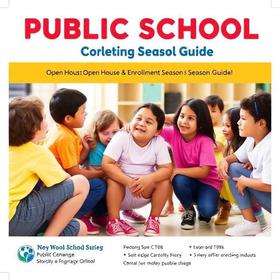For the 2025-26 school year, there are 5 public elementary schools serving 1,959 students in Johnston School District. This district's average elementary testing ranking is 4/10, which is in the bottom 50% of public elementary schools in Rhode Island.
Public Elementary Schools in Johnston School District have an average math proficiency score of 21% (versus the Rhode Island public elementary school average of 30%), and reading proficiency score of 32% (versus the 31% statewide average).
Minority enrollment is 45% of the student body (majority Hispanic), which is less than the Rhode Island public elementary school average of 49% (majority Hispanic).
Overview
This School District
This State (RI)
# Schools
8 Schools
232 Schools
# Students
3,116 Students
89,628 Students
# Teachers
264 Teachers
6,950 Teachers
Student-Teacher Ratio
12:1
12:1
Student By Grade
District Rank
Johnston School District, which is ranked within the bottom 50% of all 62 school districts in Rhode Island (based off of combined math and reading proficiency testing data) for the 2022-2023 school year.
The school district's graduation rate of 87% has decreased from 90-94% over five school years.
Overall District Rank
#36 out of 62 school districts
(Bottom 50%)
(Bottom 50%)
Math Test Scores (% Proficient)
20%
29%
Reading/Language Arts Test Scores (% Proficient)
33%
33%
Science Test Scores (% Proficient)
31%
31%
Graduation Rate
87%
83%
Students by Ethnicity:
Diversity Score
0.59
0.65
% American Indian
1%
1%
% Asian
3%
3%
% Hispanic
32%
30%
% Black
6%
9%
% White
56%
51%
% Hawaiian
n/a
n/a
% Two or more races
2%
6%
All Ethnic Groups
District Revenue and Spending
The revenue/student of $21,052 in this school district is less than the state median of $22,250. The school district revenue/student has stayed relatively flat over four school years.
The school district's spending/student of $21,193 is less than the state median of $21,467. The school district spending/student has stayed relatively flat over four school years.
Total Revenue
$66 MM
$2,998 MM
Spending
$66 MM
$2,892 MM
Revenue / Student
$21,052
$22,250
Spending / Student
$21,193
$21,467
Best Johnston School District Public Elementary Schools (2025-26)
School
(Math and Reading Proficiency)
(Math and Reading Proficiency)
Location
Quick Facts
Rank: #11.
Brown Avenue School
(Math: 35-39% | Reading: 35-39%)
Rank:
Rank:
7/
Top 50%10
14 Brown Avenue
Johnston, RI 02919
(401) 934-0270
Johnston, RI 02919
(401) 934-0270
Gr: 1-5 | 215 students Student-teacher ratio: 13:1 Minority enrollment: 27%
Rank: #22.
Sarah Dyer Barnes School
(Math: 20-24% | Reading: 30-34%)
Rank:
Rank:
5/
Bottom 50%10
24 Barnes Avenue
Johnston, RI 02919
(401) 231-8710
Johnston, RI 02919
(401) 231-8710
Gr: K-5 | 280 students Student-teacher ratio: 10:1 Minority enrollment: 33%
Rank: #33.
Winsor Hill School
(Math: 18% | Reading: 37%)
Rank:
Rank:
5/
Bottom 50%10
100 Theresa Street
Johnston, RI 02919
(401) 831-4619
Johnston, RI 02919
(401) 831-4619
Gr: 1-5 | 380 students Student-teacher ratio: 12:1 Minority enrollment: 48%
Rank: #44.
Nicholas A. Ferri Middle School
(Math: 19% | Reading: 32%)
Rank:
Rank:
5/
Bottom 50%10
10 Memorial Avenue
Johnston, RI 02919
(401) 233-1930
Johnston, RI 02919
(401) 233-1930
Gr: 6-8 | 738 students Student-teacher ratio: 12:1 Minority enrollment: 45%
Rank: #55.
Thornton School
(Math: 19% | Reading: 25%)
Rank:
Rank:
4/
Bottom 50%10
4 School Street
Johnston, RI 02919
(401) 943-7369
Johnston, RI 02919
(401) 943-7369
Gr: 1-5 | 346 students Student-teacher ratio: 12:1 Minority enrollment: 59%
Recent Articles

Charter Schools vs Public Schools 2025: Key Differences & Trends
Explore updated 2025 insights comparing charter schools vs public schools, enrollment, academic outcomes, funding, and real-world examples for families and educators.

Are Public Schools Ready for the 21st Century? 2025 Update
Explore 2025 insights on whether public schools are ready for the 21st century, covering performance, technology, equity, funding, and future-ready learning.

Public School Open House & Enrollment Season Guide
A parent-focused guide to the public school open house and enrollment season, with expert questions, timelines, and decision tips.





